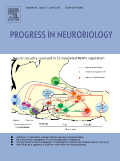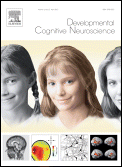
Current Opinion in Behavioral Sciences
Scope & Guideline
Bridging Research and Application in Behavioral Sciences
Introduction
Aims and Scopes
- Cognitive Flexibility and Its Mechanisms:
The journal consistently explores the concept of cognitive flexibility, examining how individuals adapt their thinking and behavior in response to changing environments. This includes discussions on neural correlates, training methodologies, and implications for mental health. - Emotional and Social Neuroscience:
Research frequently addresses the interplay between emotions and social behaviors, emphasizing how neural mechanisms underpin social interactions and emotional regulation. This encompasses studies on resilience, stress responses, and affective touch. - Neurodevelopment and Behavioral Health:
The journal highlights studies on neurodevelopmental trajectories and their impacts on behavioral health, particularly in children and adolescents. This includes resilience-promoting interventions and the effects of early experiences on later outcomes. - Artificial Intelligence in Behavioral Research:
There is an emerging focus on the application of artificial intelligence techniques in behavioral sciences, particularly in mental health contexts. This includes innovations in stress detection and intervention strategies. - Evolutionary Perspectives on Cognition and Behavior:
The journal also delves into evolutionary aspects of cognition and behavior, exploring how evolutionary history shapes contemporary behavioral traits and neural architectures.
Trending and Emerging
- Neuroscience of Stress and Resilience:
There is a marked increase in research on stress and resilience, particularly in the context of modern societal challenges like the COVID-19 pandemic. This includes investigating neurobiological mechanisms and interventions that promote resilience in vulnerable populations. - AI and Machine Learning Applications:
The integration of artificial intelligence and machine learning in behavioral research is gaining traction. Recent studies explore how these technologies can enhance understanding and treatment of mental health issues, indicating a trend towards innovative, data-driven approaches. - Cerebellar Contributions to Behavior:
An emerging focus on the cerebellum’s role in cognition and behavior is evident, with several papers discussing its implications for mental health and neurodevelopment. This suggests a growing recognition of the cerebellum beyond its traditional associations with motor control. - Transdiagnostic Approaches to Mental Health:
There is a rising trend towards transdiagnostic frameworks that examine commonalities across various psychological disorders. This approach reflects a shift towards understanding underlying mechanisms rather than isolated symptoms. - Interdisciplinary Perspectives on Climate Change:
Recent publications highlight the intersection of behavioral sciences with environmental issues, particularly how cognitive and emotional factors influence climate change perceptions and behaviors. This trend emphasizes the importance of behavioral interventions in addressing global challenges.
Declining or Waning
- Traditional Behavioral Interventions:
There has been a noticeable decline in papers focused on traditional behavioral interventions, such as basic behavioral modification techniques. The shift appears towards more integrative approaches that consider neurobiological underpinnings. - Dehumanization and Its Constructs:
Themes surrounding dehumanization have seen reduced frequency, suggesting a potential waning interest in this area. As the field evolves, researchers may be moving towards more nuanced explorations of social cognition and empathy. - Simple Cognitive Training Techniques:
Research focusing on straightforward cognitive training methods, such as basic task-switching paradigms, has decreased. Instead, the emphasis is now on understanding the complex dynamics of cognitive flexibility and its neural representations.
Similar Journals

PROGRESS IN NEUROBIOLOGY
Leading the Charge in Neurobiological DiscoveriesPROGRESS IN NEUROBIOLOGY is a prestigious journal dedicated to advancing the field of neuroscience, published by Pergamon-Elsevier Science Ltd. With an impressive impact factor, it stands as a critical resource for researchers, professionals, and students alike, featuring rigorous peer-reviewed articles that explore the latest developments in neurobiology. The journal has established itself as a leading publication, ranked in the Q1 category for Neuroscience (miscellaneous) and holding a notable 13/113 rank in General Neuroscience per Scopus metrics, placing it in the top 12% of its field. Since its inception in 1959, PROGRESS IN NEUROBIOLOGY has covered a wide array of topics, from molecular mechanisms to cognitive processes, fostering a comprehensive understanding of brain functions. While the journal is not open access, it ensures accessibility to profound knowledge through institutional subscriptions. Researchers and scholars will find critical analyses and innovative research that are pivotal for both foundational knowledge and cutting-edge investigations in the neuroscience realm.

Social Cognitive and Affective Neuroscience
Exploring the Neural Ties of Social EmotionSocial Cognitive and Affective Neuroscience, published by Oxford University Press, is a leading academic journal in the fields of cognitive neuroscience and experimental cognitive psychology. With an impact factor placing it in the Q1 category across three disciplines, including medicine, this journal stands at the forefront of research, promoting innovative studies that explore the intricate relationship between social processes and neural mechanisms. Since becoming Open Access in 2017, it has enhanced accessibility for researchers worldwide, facilitating the dissemination and discussion of groundbreaking findings. The journal, which has evolved significantly since its inception in 2006, is ranked among the top 10 in experimental and cognitive psychology and is highly regarded within the cognitive neuroscience community, making it a crucial resource for professionals, academics, and students eager to advance their understanding of the neural substrates underlying social cognition and emotion. The editorial board invites submissions that contribute to the interdisciplinary dialogue surrounding these critical areas of research, ensuring that the journal remains a vital platform for scholarly exchange.

NEUROBIOLOGY OF LEARNING AND MEMORY
Unlocking the Secrets of Learning and MemoryNeurobiology of Learning and Memory is a prestigious journal dedicated to the exploration of the neural mechanisms underlying learning and memory processes. Published by Academic Press Inc Elsevier Science, this journal boasts a strong reputation within the field, as evidenced by its impressive impact factor and high quartile rankings in multiple categories, including Q1 in Behavioral Neuroscience and Q2 in Cognitive Neuroscience. Having provided a platform for groundbreaking research since its inception in 1995, the journal aims to disseminate influential findings that further our understanding of cognitive processes, shaped by robust empirical studies and theoretical developments. Researchers and professionals in neuroscience, psychology, and related disciplines will find invaluable insights and advancements that underscore the journal's commitment to fostering knowledge and innovation within these fields. While it currently operates under a subscription model, its comprehensive coverage of crucial topics positions it as a vital resource for those engaged in the intricate study of learning and memory.

Neuropsychologia
Pioneering Research at the Nexus of Psychology and NeuroscienceNeuropsychologia, published by PERGAMON-ELSEVIER SCIENCE LTD, is a premier journal that delves into the intersections of psychology and neuroscience, specifically focusing on behavioral and cognitive processes. Since its inception in 1963, this esteemed journal has been a vital platform for researchers, professionals, and students, showcasing innovative studies and advancements in the fields of Behavioral Neuroscience, Cognitive Neuroscience, and Experimental Psychology. With a commendable impact factor, placing it in the Q2 category across multiple disciplines, Neuropsychologia is recognized for its contribution to the scientific community, ranking among the top journals in both Experimental and Cognitive Psychology and Neuroscience. The journal's commitment to excellence is evident in its rigorous peer-review process and its mission to disseminate cutting-edge research, making it an invaluable resource for those seeking to expand their knowledge and insights in neuropsychology. For further reading, the journal is accessible in both print and digital formats, ensuring that researchers can easily engage with the latest findings and theoretical advancements in this dynamic field.

EUROPEAN JOURNAL OF NEUROSCIENCE
Pioneering Research for a Deeper Understanding of the BrainEuropean Journal of Neuroscience is a prestigious, peer-reviewed journal published by Wiley, dedicated to advancing our understanding of the complex field of neuroscience. With an impact factor that positions it in the Q2 category of general neuroscience, this journal serves as a vital platform for researchers and professionals working at the intersection of biology, psychology, and medical science. Since its inception in 1989, the journal has been committed to publishing high-quality research that spans various topics within neuroscience, thus facilitating the exchange of innovative ideas and methodologies. Despite being a subscription-based journal, it attracts a diverse readership and has achieved significant recognition, evidenced by its Scopus rank of 33 out of 113 in its field, placing it in the 71st percentile. The European Journal of Neuroscience not only fosters groundbreaking studies but also encourages collaboration among scholars, making it an indispensable resource for students, researchers, and professionals eager to stay informed about the latest scientific advancements.

DEVELOPMENTAL SCIENCE
Unveiling Insights in Cognitive NeuroscienceDEVELOPMENTAL SCIENCE, published by Wiley, is a premier international journal dedicated to advancing the field of developmental psychology and cognitive neuroscience. With an ISSN of 1363-755X and an E-ISSN of 1467-7687, this journal has established itself as a vital resource for researchers and practitioners alike since its inception in 1998. The journal is esteemed for its rigorous peer-reviewed articles that explore key aspects of human development, contributing to its remarkable impact factor and prestigious rankings: it is categorized in Q1 in both Cognitive Neuroscience and Developmental and Educational Psychology, placing it in the top tiers of scholarly work. Notably, it holds an impressive Scopus rank of #30 out of 360 in Developmental and Educational Psychology and #19 out of 115 in Cognitive Neuroscience. The continuous exploration of developmental processes, education, and cognitive functions makes DEVELOPMENTAL SCIENCE an indispensable tool for those striving to deepen their understanding or contribute to these dynamic fields. Although the journal follows subscription-based access options, its high-quality findings offer invaluable insights for academicians, students, and professionals committed to the evolving landscape of developmental research.

Developmental Cognitive Neuroscience
Highlighting groundbreaking discoveries in developmental cognitive neuroscience.Developmental Cognitive Neuroscience is a leading interdisciplinary journal published by ELSEVIER SCI LTD, dedicated to advancing the field of cognitive neuroscience with a specific focus on the developmental aspects of brain function and behavior. Since its inception in 2011, this Open Access journal has continued to thrive, gaining significant recognition with a remarkable impact factor that places it in the Q1 category of cognitive neuroscience, ranking 22nd out of 115 in Scopus. This enhances its visibility and accessibility to a global audience, including researchers, clinicians, and students keen on exploring the intricate relationship between cognitive development and neurological processes. The journal embraces a wide array of topics, from the impact of early life experiences on cognitive outcomes to neurodevelopmental disorders, fostering an enriching platform for disseminating high-quality research and innovative findings. As it progresses towards 2024, Developmental Cognitive Neuroscience remains pivotal in shaping future research and understanding in the field.

NEUROPSYCHOBIOLOGY
Challenging Boundaries: Advancing Neuropsychological ScienceNEUROPSYCHOBIOLOGY, published by KARGER, is a leading academic journal that has been at the forefront of exploring the intricate relationships between neuroscience and psychological processes since its inception in 1975. With both an ISSN of 0302-282X and an E-ISSN of 1423-0224, the journal is renowned for its rigorous peer-reviewed articles and significant contributions to the fields of Biological Psychiatry, Neuropsychology, and Physiological Psychology. Its impact is reflected in its esteemed Scopus rankings, standing out in the 92nd and 81st percentiles in their respective categories. With a commitment to advancing understanding in mental health and neurological science, NEUROPSYCHOBIOLOGY is classified in the Q3 and Q1 quartiles, making it a vital resource for researchers, clinicians, and students alike. Based in Switzerland, the journal embraces a holistic approach to psychological research, bridging gaps between theoretical frameworks and practical applications, thus promoting impactful advancements in the understanding of the human mind.
Explore the latest findings and theories with NEUROPSYCHOBIOLOGY, where your work can contribute to the evolving landscape of neuropsychological studies.

TRENDS IN COGNITIVE SCIENCES
Navigating the Evolving Landscape of CognitionTRENDS IN COGNITIVE SCIENCES, published by CELL PRESS, stands as a premier platform for the dissemination of high-quality research in cognitive neuroscience, experimental psychology, and neuropsychology. With an impressive impact factor and consistently placed in the Q1 category across multiple dimensions of cognitive research, this journal not only ranks in the top tier of its fields—holding the 1st position in both Cognitive Neuroscience and Neuropsychology but also boasts an exceptional percentile ranking of 99. As it converges from 1997 to 2024, it reflects the evolving landscape of cognitive sciences, making it a vital resource for researchers, professionals, and students seeking to stay updated on influential trends and groundbreaking studies. Though not an open-access journal, TRENDS IN COGNITIVE SCIENCES offers readers access to a wealth of information that shapes our understanding of complex cognitive processes and behaviors.

Social Neuroscience
Transforming Perspectives on Social Behavior Through NeuroscienceSocial Neuroscience is a premier academic journal dedicated to advancing the interdisciplinary field that lies at the intersection of social psychology, behavioral neuroscience, and developmental studies. Published by ROUTLEDGE JOURNALS, TAYLOR & FRANCIS LTD, this journal has made significant strides since its establishment in 2006, with a convergence period extending to 2024. It regularly features innovative research articles that explore the neural basis of social behaviors and the impact of social interactions on brain function. Holding esteemed rankings in Scopus, including Q2 status in both Development and Social Psychology categories, it appeals to a broad array of scholars and practitioners keen on understanding human behavior through a neuroscientific lens. The journal's commitment to fostering critical discussions and publishing impactful research makes it an essential resource for professionals, researchers, and students alike who seek to deepen their understanding of the complex interplay between social processes and neural mechanisms.